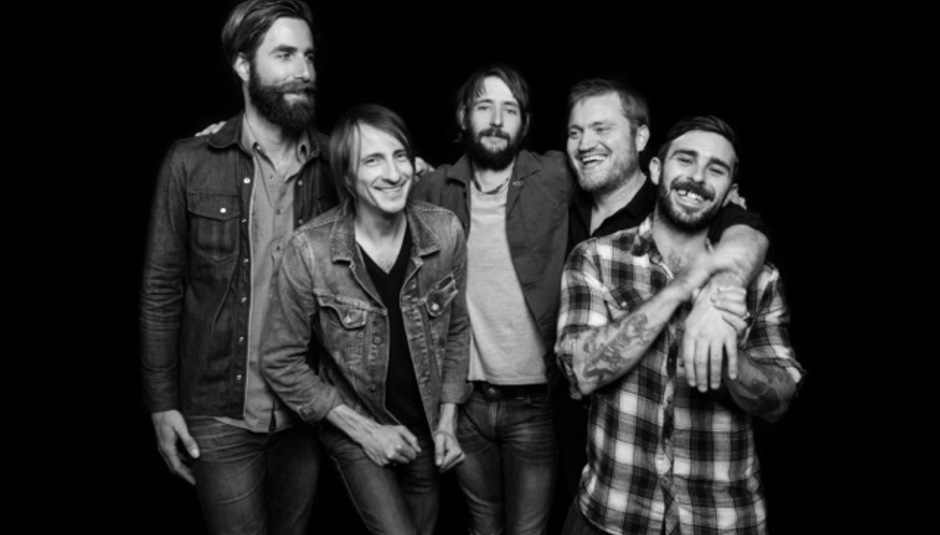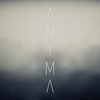“I still feel like I don’t know what I’m doing.” Ben Bridwell laughs as he reflects upon the ramshackle path to success that he’s walked down with Band of Horses; with this year marking a decade since their formation, they’ve grown used to taking things in their stride.
They spent most of the past ten years in Seattle - it’s where they formed - but would probably admit to being cast, quite distinctly, as outsiders there; they’re a band firmly rooted in the south, with Bridwell himself hailing from South Carolina. It’s fitting, then, that their latest release was recorded at Nashville’s Ryman Auditorium, which is less a venue and more a place of worship for bands that take their cues from the kind of folk and country influences that have shaped the Band of Horses canon to date.
Acoustic at the Ryman serves as a neat counterpoint to the expansive soundscapes of 2012’s Mirage Rock; where that album toyed with more straightforward rock templates and appeared to initiate a move away from the unbridled Americana of previous releases, the band’s first foray into live recording sees them dealing purely in bare-bones arrangements. The decision to mix and master the tracks in the audiophile DSD format sees a rare, genuine stab at producing a live album that actually preserves some of the atmosphere that those in attendance were privy to.
Bridwell speaks with the self-effacing air of a man still struggling to get his head around the fact that he’s able to pay his bills with his music; as recently as the late nineties, he spent his formative years as a musician sleeping rough in the backs of trucks, having been in trouble with the law back home. He spoke with us at length about the new record, as well as plans for the next studio effort, the band’s relentless work ethic and the journey he’s taken from turbulent twenties to a more settled family life back home in Charleston.
JG, DiS: What made you decide to release a live record in the first place?
BB: Man, it’s funny. We’d been playing with the idea of releasing a live album, and we finally decided we were going to record this month-long run of shows we had last April. It was just a normal tour, with these two acoustic shows thrown in there. We figured we’d cull the best recordings from the whole tour and put it out, but by the time we were off the road, we found ourselves gravitating towards the acoustic stuff. We really felt as if we were out of our element playing that way, stripped-back; I was surprised we ended up leaning towards it afterwards. I think the fragile nature of the recordings just had this excitement to them, and it seemed like a more interesting thing to put out than our usual rock show.
What was the thinking behind playing two acoustic shows in the middle of a normal tour?
Well, we’d booked the Ryman Auditorium as part of the tour anyway, and that place is just kind of steeped in the lore of acoustic music, and country and western music. I think it was built to specifically project a sound that’s sympathetic to not having amplifiers and things like that. We’ve become a lot more comfortable playing acoustic guitars these past few years - just playing the songs that way in promo settings, that kind of thing - and we thought this would be a good place to try it in front of an audience, just a thirty-minute acoustic set before we played the full rock show. That setting just lends itself to some acoustic bangin’, I guess.
Did you have to rework the songs significantly to make them work in that setting? Was there a lot of rehearsal involved?
I think we already knew how to play about half of the stuff acoustically, and then, yeah, the rest we just had to pick through and figure out. The thing is, it’s such a unique room there that we didn’t really know how it was going to sound until we went out and played. It’s crazy; that venue is a museum until, like, 5pm, and then you’ve got two hours to set up and soundcheck. We didn’t really get the opportunity to rehearse right there in the auditorium. It really was a pretty big step into the unknown, right up until we went out on the first night.
How did you decide which songs you were going to play? There’s a few on the record that don’t seem like the most obvious acoustic choices, ‘The Funeral’ especially...
We kind of ran through everything and figured out there was maybe an hour’s worth of songs we could adapt for the shows. I think what attracted us to stripping back the rockier songs was that it just seemed to be the biggest risk to take. I mean, with ‘The Funeral’, that’s our biggest song, and we’ve never performed it that way before, in that quieter dynamic, not even for promo. I guess it just seemed stupid enough to try. We were kind of thinking, if it works, there’s a big payoff, and it if it doesn’t, the crowd are still gonna have our back for trying, you know? Maybe that was a pretty optimistic view to take, in retrospect!
So were you deliberately shying away from playing too many of the obvious acoustic songs? ‘Evening Kitchen’, for example, I would’ve thought that’d be a shoe-in.
We did play ‘Evening Kitchen’, actually, but it didn’t make the cut. I can’t remember why, now; we had about fifteen or so to choose from, so a few were left off. But I don’t think we were trying to leave out the quieter stuff from the records, necessarily. The thing is, on the night, we didn’t know we were going to use that stuff for the live album. If we had, we would’ve chosen a different setlist. I’m pretty happy with it this way, to be honest; it’s very natural. We’d probably have gone out with a very different mindset if we knew we were definitely using the recordings. We stumbled into the whole thing, really, and I like that.
Is that stripped-back sound reflective of how the songs tend to start out? Do you demo a lot of stuff acoustically?
Actually, that’s not really my thing. I don’t play guitar like a normal person, and I don’t really write like a normal person. I tend to over-demo ideas when I come up with them - you know, make them very lush, to make up for my lack of ability, I guess. Like, I’ll be really trying to overcook stuff, just to make the ideas seem grander than they are. So, for me, that acoustic scenario was especially unnerving. It really isn’t what I’ve come from. I think I’ve probably shied away from it in the past.
Are there any live records you really love, that you felt you were trying to emulate with this album?
It’s funny, you’d think I would’ve been referencing a lot of that stuff, especially in the mixing of it. Honestly, I don’t really listen to live records that often. I mean, I’m a huge Neil Young fan; I always loved hearing a new live bootleg of his. The Band’s Rock of Ages, too, that’s a big favourite of mine. Plus, I’m thirty-five years old, you know, so I was pretty ripe for Nirvana’s Unplugged thing, when that came out. But now, when I want to listen to an artist, at this point in my life, I never tend to go looking for the live stuff.
Let’s hope people feel differently about Band of Horses, then...
I know, man, shit! It’s probably a bad time to be admitting that. It’s the honest truth, though.
Why did you decide to mix and master the record in audiophile quality, using the DSD format?
We’ve got some real talent in the band in the form of our bass-playing, engineering and producing madman, Bill Reynolds. He’s very well-versed in the new technologies; he brought it up to us, saying that there weren’t a whole lot of contemporary acts that have used this system yet. I think he wanted to be one of the first rock musicians to get in on it. If it takes off, I guess this record might give people kind of a different graphic to figure out what it can be used for, rather than having to just listen to the few jazz records that are in that format.
Do you think the audience reacted differently to the acoustic stuff because it was kept separate from your rock show? Sometimes crowds tend to switch off a little bit when bands play stripped-back songs halfway through a full band set...
Yeah, I feel like the crowd came into it on our side, just because they knew it wasn’t what we were used to. I got the sense that they knew we were out of our comfort zone, and it took a little bit of the stress out of the situation to see how supportive they were. We felt like we could be goofier, more laid-back with them. When we play rock shows, we’re usually pretty conscious about not taking our foot off the gas, even between songs - you don’t want there to be any dead air. So, this was a nice little reminder to take our time, and to interact with people. It might just be that the mystique surrounding the setting helped, too, but I definitely felt like I enjoyed that side of the coin.
Speaking of southern settings, you moved back to South Carolina recently, right?
Yeah. I’d been living in Seattle for nearly ten years, and man, I got a lot further than I should have. Given that I hadn’t really been playing in bands before I got there, and that my prospects for employment were never really looking that great, things really turned out well for me. We got to be travelling so much that to be living in such a big city and paying that kind of rent, and having that lonely existence in the city when I was at home, it just didn’t really fit. It started to really appeal to me to be back in a familial environment, after the best part of a decade away. Just to be around my brother and sister, my parents again; that’s what I want at this point.
Do you find the constant travelling harder now that you’re settled and have a family?
It’s a hard thing to say, because I do think that a man in his thirties should not be afraid to work, you know? I think my wife feels that way as well. I’m probably more of a pain in the ass when I’m at home, when I’ve got too much dead time. We’ve managed to strike a nice balance with it recently, and we’ve been in a band long enough to know what the pitfalls are. We’ve always felt so blessed to have the opportunity to work that we seem to have constantly kept going.
Have you started thinking about the next studio album yet?
We haven’t hit record yet, but there’s a lot of songs floating around, and we’ve been getting together and playing through them. I believe we’re going to go into the studio in April, and just take our time with it. Luckily, we’ve got this acoustic album to keep things rolling for us and keep us on the road a little bit, so we’re not rushing.
Can you tell us anything about how it’s sounding?
I don’t want to jinx anything by saying it’s going to sound this way or that, but right now, the songs that I’m leaning towards are lusher than the last record, and a lot longer, too. They’re definitely not pop songs; they’ve all got a lot of space in them. Most of them are over the seven minute mark at this point, and we’ll probably have to cut them back a little. There’s going to be some darker imagery, too, I think; that’s what I’ve been trying to hone where my writing’s concerned.
It’s just kind of a wait and see thing for now; when you’re bouncing ideas back and forth, you might think something makes a lot of sense one minute, and then the next thing you know, it makes no sense at all. It’s a delicate time for us, I guess.
Acoustic at the Ryman is available February 24th via Brown Records.
[94288]: http://dis.resized.images.s3.amazonaws.com/540x310/94288.jpeg






















